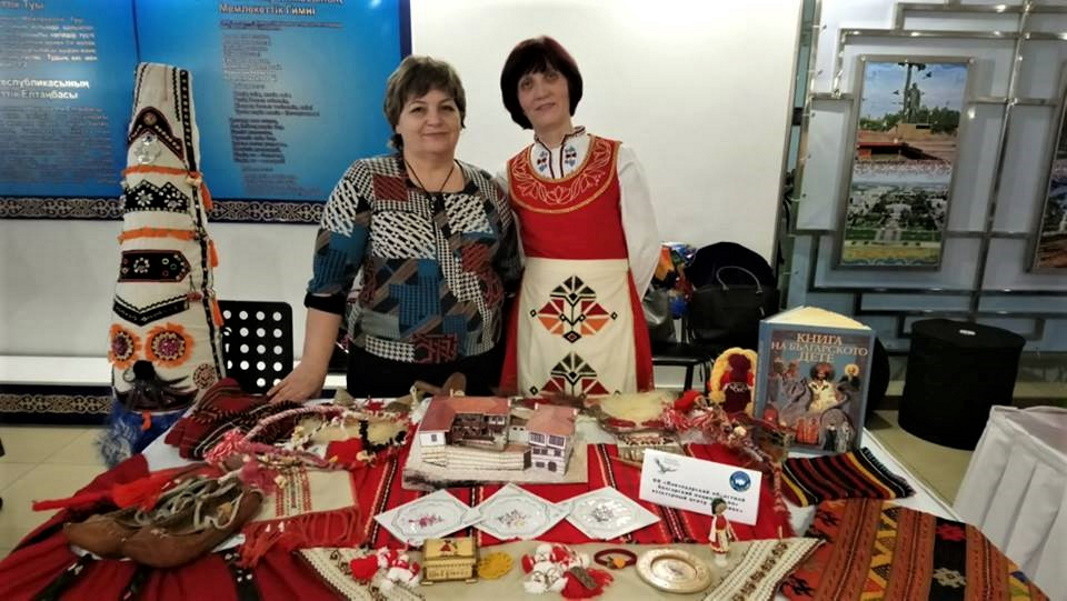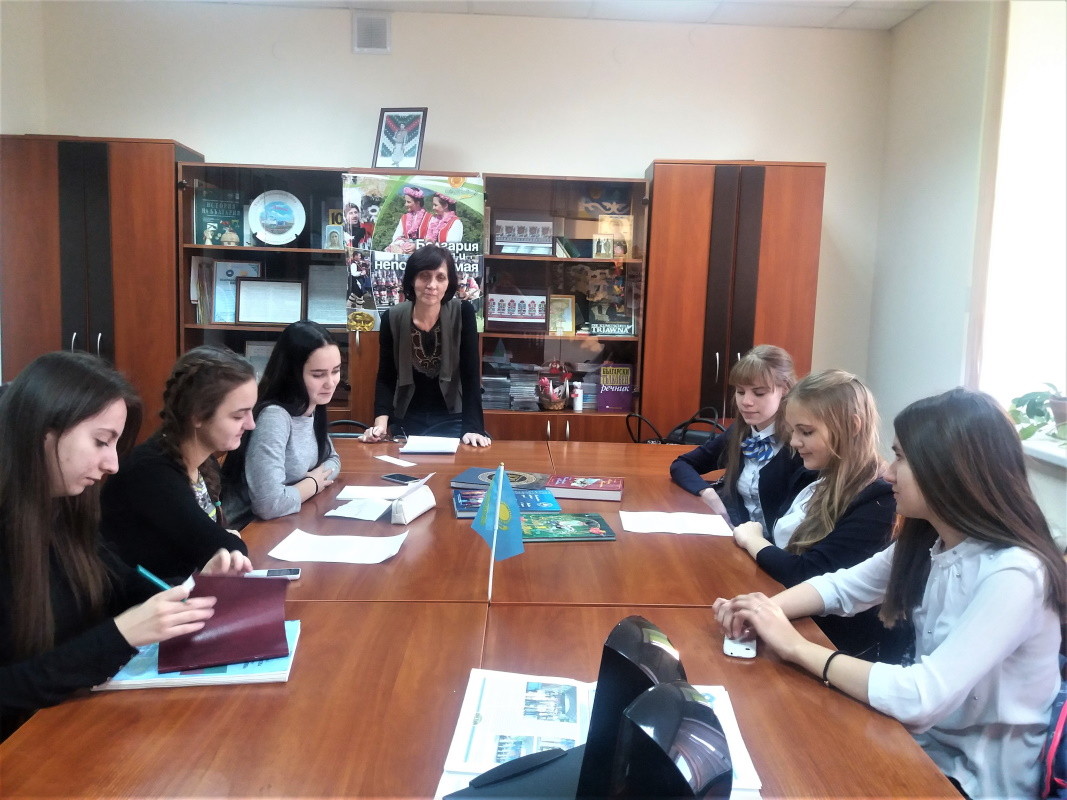Kazakhstan - the country spread out on two continents - Europe and Asia - is still obscure and wreathed in mystery for many Bulgarians. And yet, both countries have an invisible link between them – the 4,500 Bulgarians living among the 18 million nativecitizens of the country of the golden sun.
How and when did these Bulgarians find themselves there, how do they manage to preserve their traditions and language? Valentina Shatova, who for the last eight years, since 2012, has been head of the Bulgarian Zdravets ethno cultural centre in the town of Pavlodar, elaborates on this question in the interview she gave for Radio Bulgaria.

At the beginning of the 20th century, during the period between 1907 and 1911, a part of the Bulgarians who found their salvation from the Ottoman oppression in Bessarabia once again packed their belongings. This time - chased by the agrarian reformation in the Russian empire, undertaken by the Pyotr Stolypin government. In search of a land with better living conditions, they rushed into the Kazakh Steppe. Along with the rest of their luggage, the Bulgarians decided to carry their saplings and seeds. This is what Valentina Shatova knows from her mother’s tales. The Bulgarians reached Omsk by train and from there carried on in convoys. They wanted to settle in onto the left shore of the Irtysh River, but by orders of the local administration were sent into the wild steppe. There, 70km away from Irtysh, the Bulgarians created two thriving villages - Razumovka and Adrianovka, of which the second still exists.

The local Kazakhs taught the Bulgarians how to build their houses - dugouts from clay and straws. The houses were well-maintained, always whitened, because, as Valentina Shatova puts it, Bulgarians are “hard-working and diligent people”.
Today, the main part of the Bulgarian population in Kazakhstan is concentrated in the Pavlodarska and Aktyubinska areas. They have still preserved their native language, even if the dialect is a little different to contemporary Bulgarian.
“We speak in the same way that our ancestors from a hundred years ago used to speak. It is mainly maintained on a daily life level in the entirely Bulgarian households,” says Valentina Shatova.

She is an ethnic Bulgarian but first visited her historical motherland only a few years ago, in 2016, when she took part in an International Bulgarian language and culture seminar in Veliko Tarnovo.
“When I landed in Sofia, I felt on what was perhaps a genetic level that I have come back to my roots,” shares Valentina Shatova with excitement.
Today, in the centre led by her, the adolescent Bulgarians in Kazakhstan are studying Bulgarian language, traditions, culture and cuisine. They popularize them by organizing celebrations in front of an audience. In 2017, the 110th anniversary of the migrations was solemnly celebrated.

“Our centre was created in 2002 by Pyotr Kamenetski. Our activities are directed at preserving and promoting Bulgarian ethnic authenticity,” explains Shatova.
Among the favourite holidays of the Bulgarians in Kazakhstan are Christmas Eve and Christmas, which they celebrate just like Bulgarians in Bulgaria, on the 24thand 25th of December. Another favourite holiday is the 1st of March (Baba Marta), when the members of the Zdravec ethno cultural centre give away martenitsas (red-and-white decorations made of yarn) to young and old and not only to representatives of the Bulgarian diaspora, but also from other ethnicities.
“People are very happy and believe that when somebody puts a martenitsa on their wrist, they will be healthy,” says Valentina Shatova.
The other main activity of the centre is teaching Bulgarian language.

“We have great classrooms. Owing to the Bulgarian embassy in Kazakhstan and the Bulgarian Ministry of Education, we dispose of a substantial body of literature, with all the necessary textbooks, video and audio materials,” shares Valentina Shatova.
The Bulgarian language classes in the centre are preparing pupils who want to continue their education in Bulgaria in quotas determined by the Bulgarian Ministry of Education. 30 young Bulgarians from Kazakhstan have already come to Bulgaria to study and have successfully integrated.
English version Boris Totchev
Photos: courtesy of Valentina ShatovaA photo exhibition called “Bosilegrad Before and Now – 2” will open on October 13 at the Municipal Art Gallery in the town of Karlovo. The photo exhibition contains 40 panels with motifs and landscapes from Bosilegrad, Serbia, and several Bosilegrad..
The second edition of the unique Blackthorn Festival will be held today in the village of Salash near Belogradchik, northeastern Bulgaria. The event will begin on the square, where locals will offer sweets and jam from tart blackthorns collected in..
U.S. sanctions on NIS activated despite expectations of delay U.S. sanctions on Serbian oil company NIS – Naftna Industrija Srbije came into force on Thursday after being postponed eight times and despite expectations of yet another postponement,..
A celebration of children’s love of books and imagination will take place on 25 October in Los Angeles, organised by the Bulgarian School “St. St. Cyril..
The cool autumn evenings give us a reason to immerse ourselves in the cosy atmosphere of restaurants in Sofia and try new flavours..
Today, 24 October, a new Bulgarian school in Spain – in the town of Fraga in the autonomous community of Aragon - is opening doors for the start of the..

+359 2 9336 661
